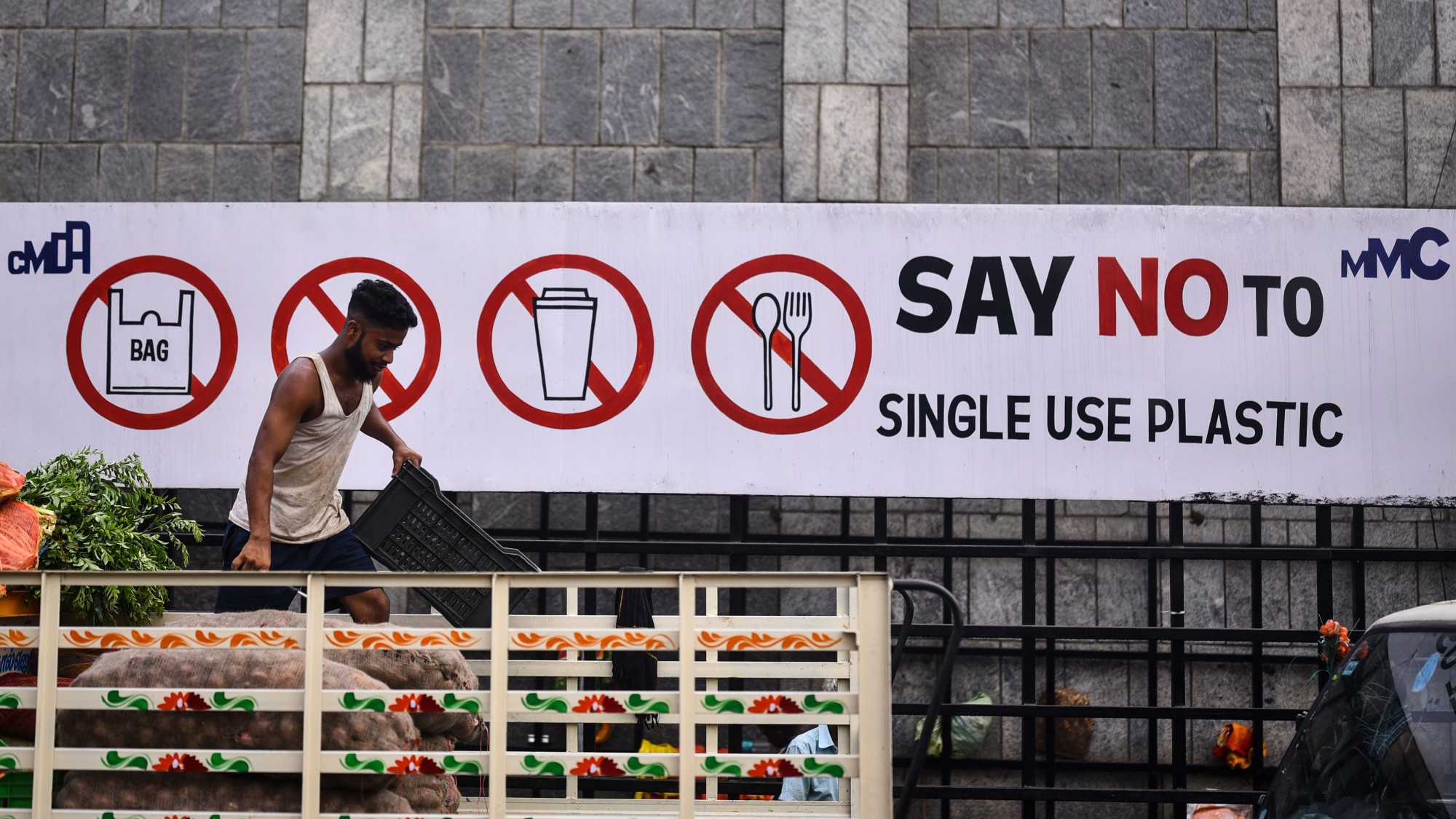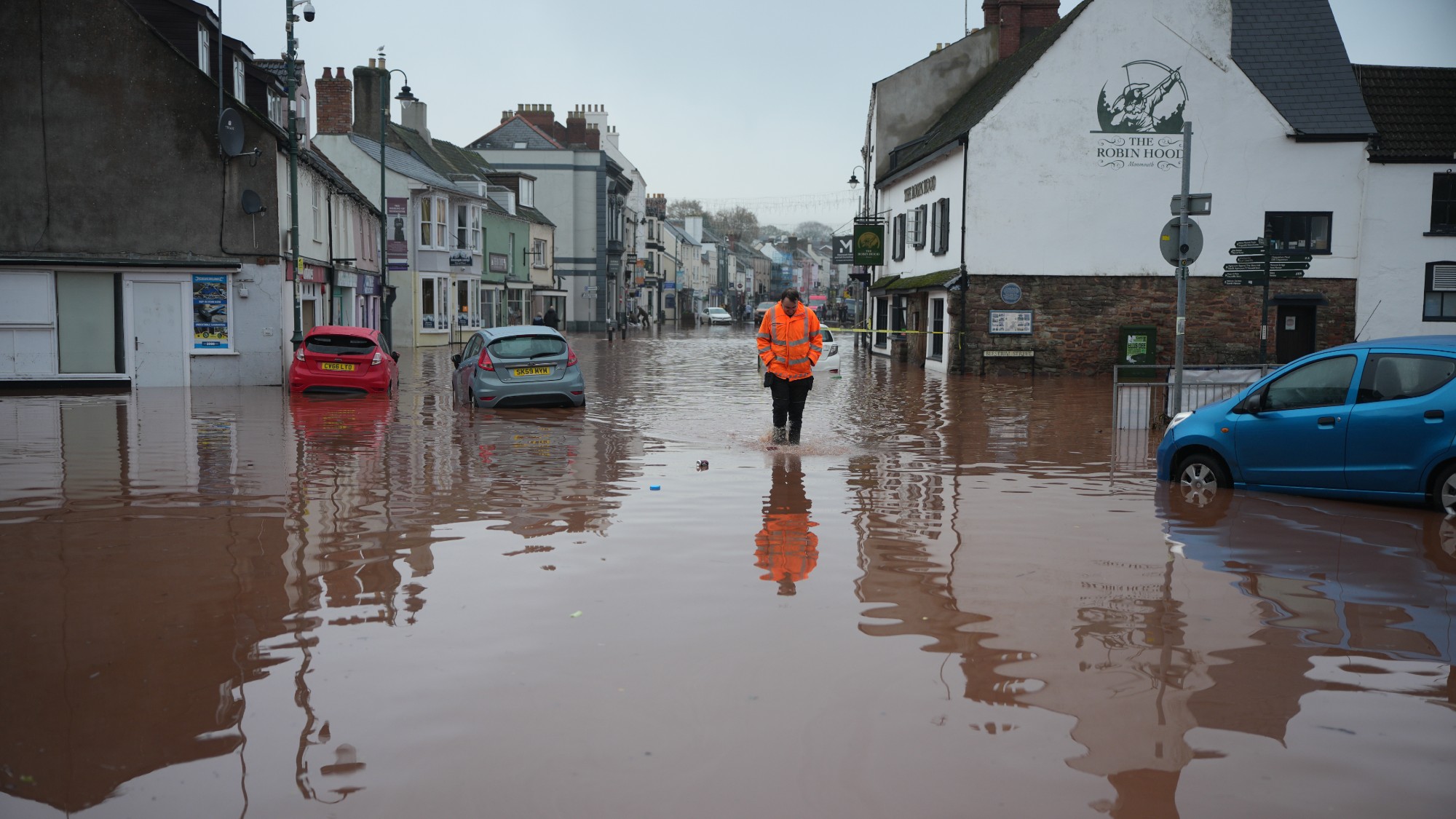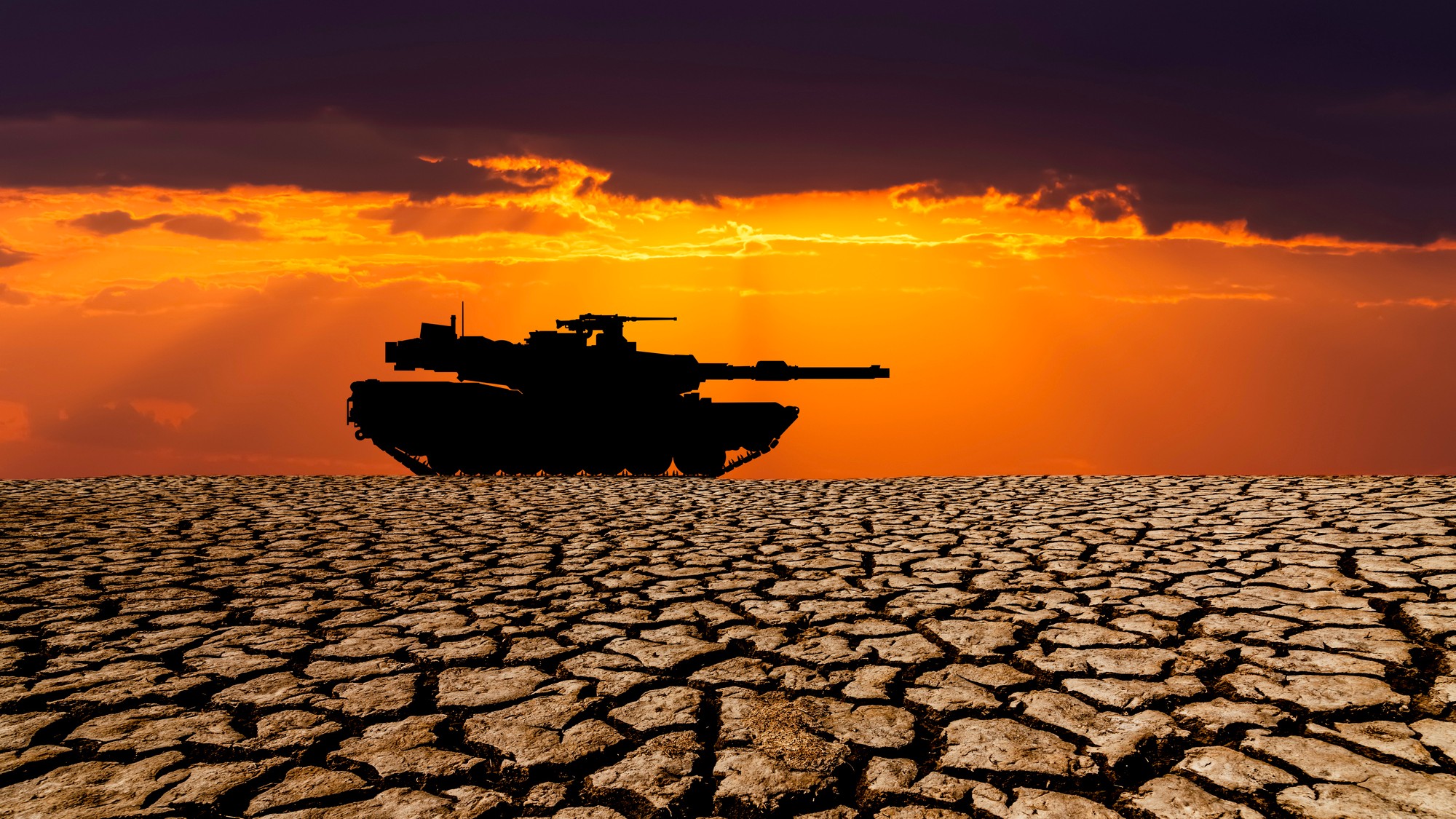Mushrooms and urine – the strange solutions to our plastic problem
Over 30% of plastics are single-use prompting imaginative alternatives

A free daily email with the biggest news stories of the day – and the best features from TheWeek.com
You are now subscribed
Your newsletter sign-up was successful
As the planet drowns in plastic waste, companies are devising bizarre alternatives, including stretchy seaweed, reverse vending machines and bamboo utensils, to save us all.
Plastic waste often does not decompose and it can last in landfill for many years but the "cure" for "disposable plastic crap" has arrived, said Wired, and it's becoming ever more imaginative.
What is the problem?
Plastic pollution is a growing issue that's impacting ecosystems globally. Over 30% of plastics are single-use and although this is convenient it means they are discarded after just one use, a problem that "haunts the public imagination like a spectral wolf", said Wired.
The Week
Escape your echo chamber. Get the facts behind the news, plus analysis from multiple perspectives.

Sign up for The Week's Free Newsletters
From our morning news briefing to a weekly Good News Newsletter, get the best of The Week delivered directly to your inbox.
From our morning news briefing to a weekly Good News Newsletter, get the best of The Week delivered directly to your inbox.
So is recycling the answer? Well, "shockingly", said the BBC, recycling "merely slows down the journey of plastics to landfills or oceans, where the material simply fragments into smaller and smaller bits that never completely biodegrade". So while it is a "step in the right direction", we "need to look toward plastic alternatives".
What are the plastic alternatives?
"Fortunately", said the broadcaster, various experts are now "shifting their focus" to ecologically friendly alternatives that create "circular, low-waste ecosystems" – for instance liquid wood, algae insulation, and polymer substitutes made from fermented plant starch such as corn or potatoes.
The maths show the benefit of these innovations: while single-use straws made of traditional plastics can take up to 200 years to degrade, single-use straws made of bioplastic PHA will degrade in just 90 days when buried in soil and 180 days in the ocean.
There's an irony in the fact that while the oceans pay the prices of dumped plastic, they might also offer part of the solution. Seaweed is "kind of hot", said Wired, and a company in California is using it to make cellophane-like bags.
A free daily email with the biggest news stories of the day – and the best features from TheWeek.com
Composed of the plant’s long chains of carbohydrate molecules, you can "throw it on a regular home composting heap" and "in a few weeks you'll find only scraps of it" and "in six months, it'll be an organic part of the soil".
What other alternatives are there?
Mushrooms "aren't just a flavour-packed addition to ravioli or ragu" or a "sparkplug to the occasional psychedelic adventure", said the BBC, they may replace materials like polystyrene, protective packaging, insulation, acoustic insulation, furniture, aquatic materials and "even leather goods".
Urine has proven to be a useful ingredient in bricks, and "stone wool" from natural igneous rock can produce a fibreglass-like plastic and can be engineered to boast unique properties including fire resistance and water repellency. Or you can go even more natural than that. Rather than using plastic cocktail stirrer you could "try a stick of celery, carrot or cucumber", said WWF Australia, or "why not go herbal and try a stick of rosemary"?
Then there is the option of simply increasing recycling rates. A Norwegian company "recycles nearly every damn bottle" using "reverse" vending machines. Customers "shove used bottles in and earn a few coins back" and the companies that made the bottles pay less tax.
So is the problem solved?
Although "theoretically" these alternatives could "seamlessly slot into existing supply chains" there are some doubts about them, said Time, because "production is limited in scale" and more expensive, and it's not been proven that the alternatives are "actually better for human and planetary health".
Also, most plant-based plastics are, "on a molecular level", the same as their "fossil-fuel-sourced siblings" and "last just as long in the environment".
So-called 'greenwashing' has become a" troubling issue", said Forbes, because corn-based materials that are marketed as "compostable" do not "degrade as promised if they end up in forests or oceans".
The alternative plastic world is a "minefield", said Time, and "cloaked" in sustainability marketing that "at best is aspirational", and "at worst causes as many problems as the products it is trying to replace".
The search for a solution to the planet's plastic problem continues.
Chas Newkey-Burden has been part of The Week Digital team for more than a decade and a journalist for 25 years, starting out on the irreverent football weekly 90 Minutes, before moving to lifestyle magazines Loaded and Attitude. He was a columnist for The Big Issue and landed a world exclusive with David Beckham that became the weekly magazine’s bestselling issue. He now writes regularly for The Guardian, The Telegraph, The Independent, Metro, FourFourTwo and the i new site. He is also the author of a number of non-fiction books.
-
 Switzerland could vote to cap its population
Switzerland could vote to cap its populationUnder the Radar Swiss People’s Party proposes referendum on radical anti-immigration measure to limit residents to 10 million
-
 Political cartoons for February 15
Political cartoons for February 15Cartoons Sunday's political cartoons include political ventriloquism, Europe in the middle, and more
-
 The broken water companies failing England and Wales
The broken water companies failing England and WalesExplainer With rising bills, deteriorating river health and a lack of investment, regulators face an uphill battle to stabilise the industry
-
 The environmental cost of GLP-1s
The environmental cost of GLP-1sThe explainer Producing the drugs is a dirty process
-
 The world is entering an ‘era of water bankruptcy’
The world is entering an ‘era of water bankruptcy’The explainer Water might soon be more valuable than gold
-
 Why scientists want to create self-fertilizing crops
Why scientists want to create self-fertilizing cropsUnder the radar Nutrients without the negatives
-
 ‘Jumping genes’: how polar bears are rewiring their DNA to survive the warming Arctic
‘Jumping genes’: how polar bears are rewiring their DNA to survive the warming ArcticUnder the radar The species is adapting to warmer temperatures
-
 How will climate change affect the UK?
How will climate change affect the UK?The Explainer Met Office projections show the UK getting substantially warmer and wetter – with more extreme weather events
-
 The Southern Ocean is holding in a ‘burp’
The Southern Ocean is holding in a ‘burp’Under the radar The heat from the past can affect the future
-
 Builders return to the stone age
Builders return to the stone ageUnder the Radar With brick building becoming ‘increasingly unsustainable’, could a reversion to stone be the future?
-
 How climate change poses a national security threat
How climate change poses a national security threatThe explainer A global problem causing more global problems